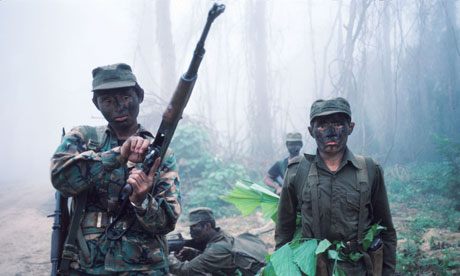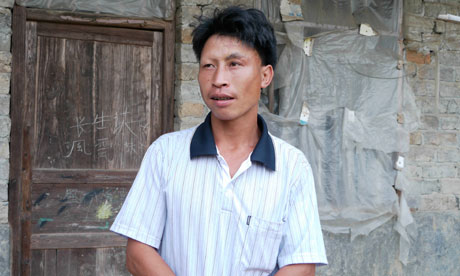 |
| "Karen National Army guerrillas who are fighting the Burmese army for greater autonomy and an end to what they describe as ethnic cleansing." (Robert Nickelsberg/Getty Images) |
By Esmer Golluoglu
The Guardian, September 30, 2011
"The scars on their shoulders and backs give it away. Its leaders may suggest otherwise, but Burma is a country riven by the world's longest running civil war. And the pawns are the Burmese convicts forced to work as porters on the frontlines. Made to carry heavy supplies, they are regularly beaten and used as human shields against landmines. Those who have escaped form a growing underclass of refugees on the Thai border, where they eke out a meagre living and face deportation at any time. 'I work for a day, eat for a day but I am now free,' said Thay Utoo Ong at the secret location where he and three others met the Guardian. 'With the army, I had to carry 35kg of water on my back for 13 hours every day, without food or water. I knew I was going to die if I stayed ... I would either starve to death or be shot dead. In January, the 32-year-old was one of 1,200 convicts taken to bolster a military offensive against ethnic insurgents. Many were subjected to torture or summary executions, or placed directly in the line of fire, recounted Maung Nyunt. 'One porter stepped on a mine and lost his leg; he was screaming but the soldiers left him there,' he added. 'When we came back down the mountain he was dead. I looked up and saw bits of his leg in a tree.' Since 1948 the Burmese army, or Tatmadaw, has been fighting a civil war against armed groups including the Karen, whose members want greater autonomy and an end to what they describe as ethnic cleansing.
